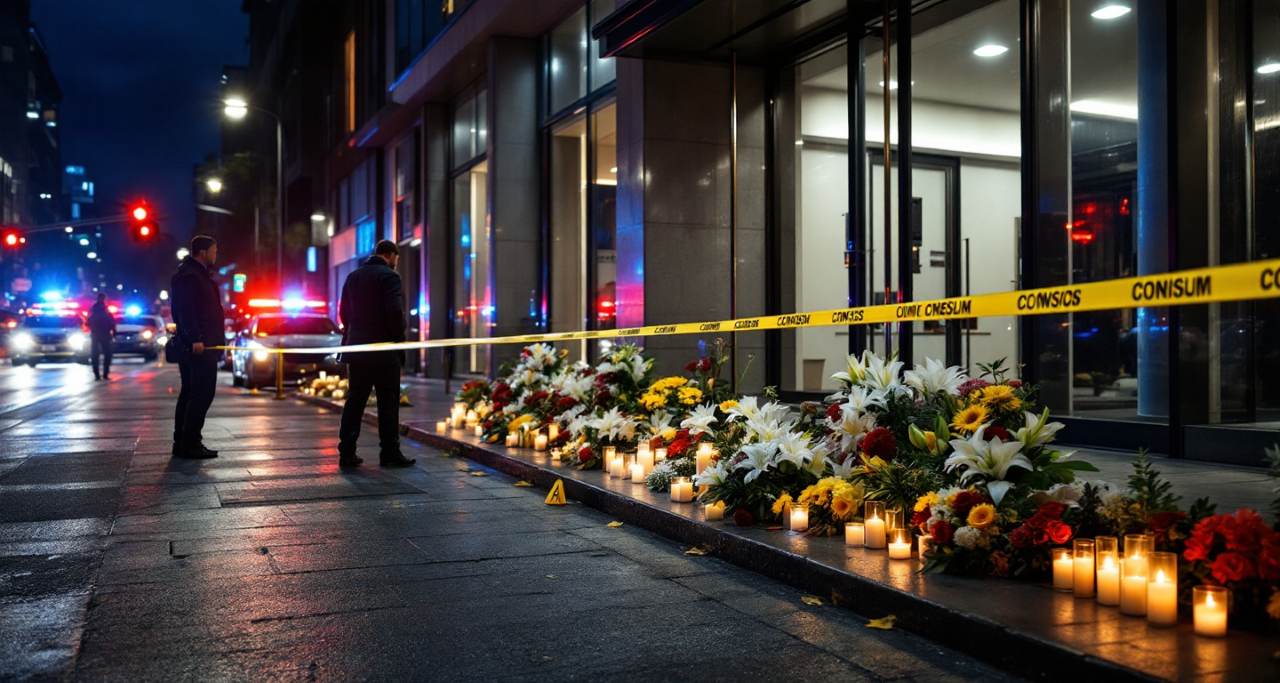A Night of Promise Shattered by Hate

On a warm Wednesday evening in Washington, D.C., the city’s diplomatic and Jewish communities gathered for what should have been a night of connection and hope.
Instead, the event outside the Capital Jewish Museum ended in horror, as two young Israeli embassy staffers—Yaron Lischinsky and Sarah Lynn Milgrim—were gunned down in what authorities are calling a targeted anti-Semitic attack. The couple, both in their twenties and on the verge of engagement, became the latest victims in a wave of global anti-Jewish violence that has left many feeling vulnerable and shaken.
The Victims: More Than Colleagues, Partners in Life
Yaron and Sarah were not just colleagues at the Israeli Embassy; they were partners, soulmates, and, as it turns out, days away from a planned engagement in Jerusalem. According to Israel’s Ambassador to the U.S., Yechiel Leiter, Yaron had purchased a ring that week, intending to propose to Sarah during their upcoming trip home. Their friends and coworkers described them as inseparable—often seen sharing quiet lunches, working late into the night, and supporting each other through the pressures of diplomatic life. The embassy’s statement was raw and immediate: “They were in the prime of their lives. The entire embassy staff is heartbroken and devastated by their murder. No words can express the depth of our grief and horror at this devastating loss”.
The Attack: A Calculated Act of Terror
The couple had just exited a private event hosted by the American Jewish Committee—a cocktail evening for young Jewish professionals and diplomats—when the gunman struck. Witnesses recall the shooter, later identified as 30-year-old Elias Rodriguez of Chicago, approaching at close range and opening fire. The FBI and D.C. police quickly apprehended Rodriguez, who, according to multiple reports, shouted “Free, free Palestine!” as he was taken into custody. He later confessed to the crime, telling officers he acted “for Gaza”.
The attack was not random. Law enforcement officials believe Rodriguez had been loitering near the museum earlier that day, raising suspicions that the shooting was premeditated. The FBI is now investigating his background and online activity for further evidence of extremist motivation.
The Aftermath: Outrage, Grief, and a City on Edge
The response from leaders was swift and unequivocal. Israeli Prime Minister Benjamin Netanyahu called the murders a “heinous anti-Semitic attack” and ordered increased security at Israeli missions worldwide. President Donald Trump, posting on his social media platform, condemned the killings as “obviously based on antisemitism” and called for an end to such hatred in the U.S. D.C. Mayor Muriel Bowser, standing before a shaken city, declared, “We will not tolerate this violence or hate in our city. We will not tolerate any acts of terrorism, and we’re going to stand together as a community in the coming days and weeks to send a clear message that we will not tolerate anti-Semitism.”
Security was immediately ramped up at Jewish and Israeli sites across Washington and New York, with both visible and hidden patrols. The Capital Jewish Museum, closed in the wake of the attack, announced plans to reopen with heightened security in the coming days.
A Personal Reflection: The Weight of Fear and the Need for Solidarity
As someone who has covered hate crimes and anti-Semitic incidents for years, I can’t help but feel a familiar chill reading the details of this attack. The randomness of the violence, the ordinariness of the evening, the way a moment of joy—an impending engagement—was stolen by hate. I remember speaking with a rabbi in Pittsburgh after the Tree of Life shooting, who told me, “We are always looking over our shoulders, but we refuse to disappear.” That same spirit of resilience is palpable in the statements from Jewish leaders and diplomats today.
But there’s also a growing sense of exhaustion. How many times must communities gather to mourn, to light candles, to promise “never again”? The attack on Yaron and Sarah is not just a tragedy for their families or the embassy—it’s a warning flare for all who believe in pluralism and safety for minorities.
The Broader Context: A Surge in Global Anti-Semitism
This attack comes amid a documented rise in anti-Semitic incidents worldwide, particularly since the October 7th massacre in Israel. Jewish communities in the U.S. and Europe report increased threats, vandalism, and violence. The murder of Yaron and Sarah is, as Israeli Foreign Minister Gideon Sa’ar put it, “the direct result of toxic anti-Semitic incitement against Israel and Jews around the world”.
Moving Forward: Demanding Action, Not Just Words
The challenge now is to ensure that this tragedy is not just another headline, another moment of outrage that fades with the news cycle. It’s a call to action for law enforcement, policymakers, and civil society to confront anti-Semitism with the seriousness it demands. As former second gentleman Doug Emhoff wrote, “Jews must be able to gather without fear or violence. We will not be silent and we will never let antisemitic terror defeat us.”
The memory of Yaron and Sarah—two young people whose lives were full of promise—deserves nothing less.
